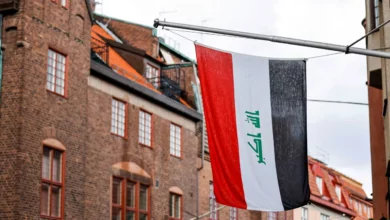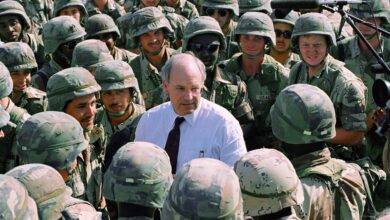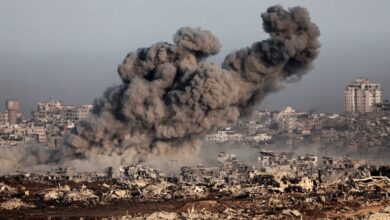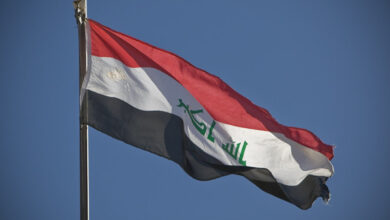Six explosions hit neighborhoods across Baghdad on Thursday, killing at least 17 people and wounding dozens more in the most deadly attacks on the Iraqi capital in more than a month.
The attacks — a truck bomb in a market, a car bomb and roadside explosives — broke weeks of relative calm in Baghdad just as Iraq's government, shared among Shia, Sunni and Kurdish blocs, wrangles over a crisis that risks reigniting sectarian tensions.
In the largest blast, a bomber detonated a vegetable delivery truck packed with explosives near a restaurant in a market, killing at least 13 people and wounding 38 in the mainly Shia Shula district, police and witnesses said.
"The pickup truck came into the market and the driver left it saying he was going to get people to unload vegetables," said Haider Fadhil, one of the wounded. "It was a huge explosion, I was knocked out and woke up in a car on my way to hospital."
A car bomb exploded near the vehicle of one of Prime Minister Nouri al-Maliki's advisers, killing one civilian and wounding three in western Baghdad, police and hospital officials said. It was not clear whether the adviser was targeted.
Two roadside bombs also exploded in Amiriya district, killing two people and wounding four more, while roadside bombs killed one and injured 15 more people in other mixed neighborhoods in western and southern parts of the capital.
Violence in Iraq has fallen sharply since the height of the sectarian slaughter triggered a few years after the 2003 US-led invasion that ousted Saddam Hussein. Suicide bombings and blasts claimed hundreds of lives daily in 2006-2007.
In the last major attacks, 20 bombs hit cities and towns across the country in mid-April, killing 36 — including 15 people in mainly Shia areas in Baghdad — and raising fears of renewed sectarian strife.
Since the last US troops pulled out in December, Sunni Islamists have often targeted local security forces and government buildings, but have also sought out Shia victims in an attempt to stir sectarian tensions.
Many Iraqi Sunnis say they fear Maliki wants to shore up Shia power by sidelining Sunni leaders from the power-sharing government set up over a year ago after inconclusive 2010 elections.
Al-Qaeda's local affiliate, Islamic State of Iraq, claimed responsibility for April's attacks, saying they were in response to detentions and confiscations it said the Shia-led government had carried out in Sunni areas.
A Sunni vice president, Tareq Hashemi, has fled to Turkey after a court sought his arrest on charges he and his bodyguards ran a death squad. Hashemi says the charges are political, but Maliki's supporters say it is just a criminal case.




